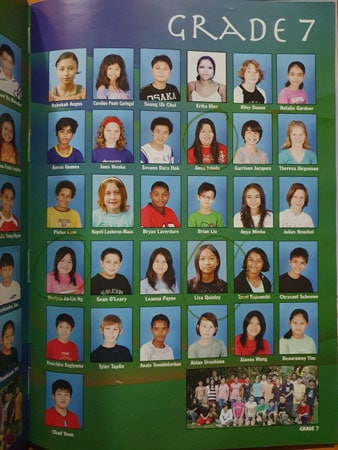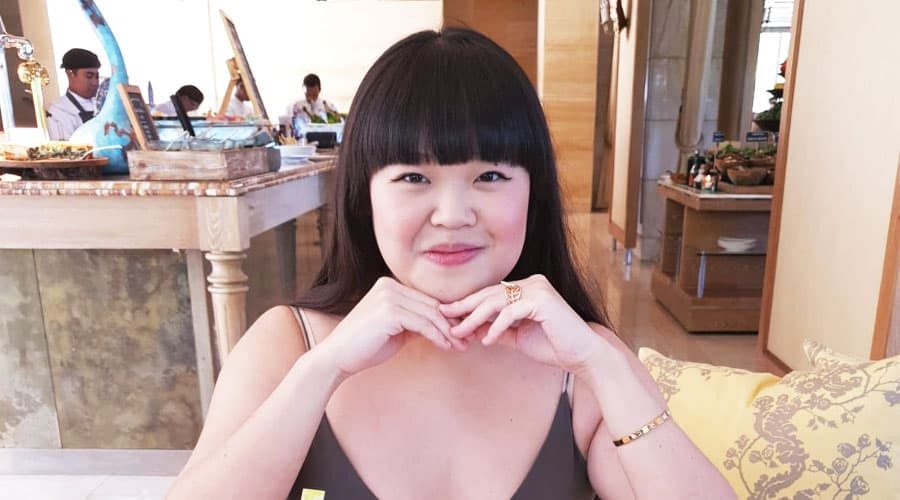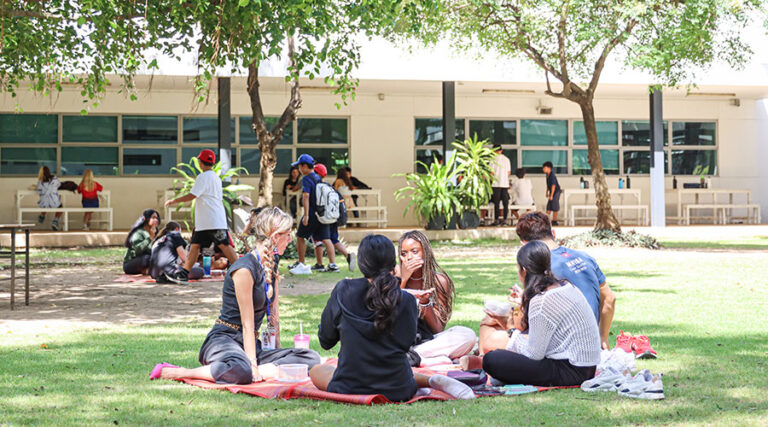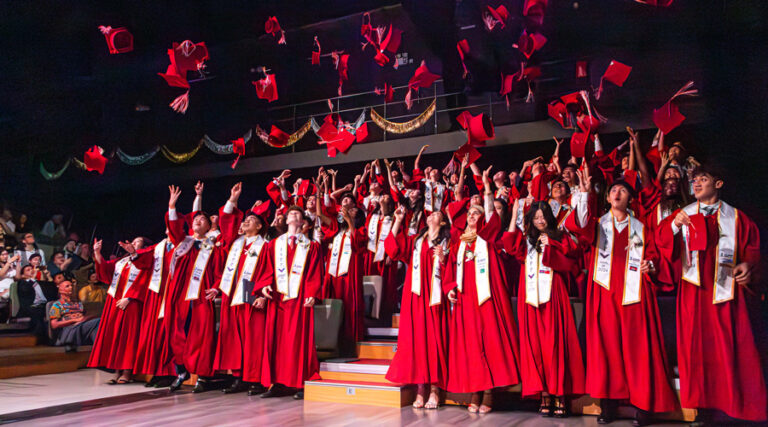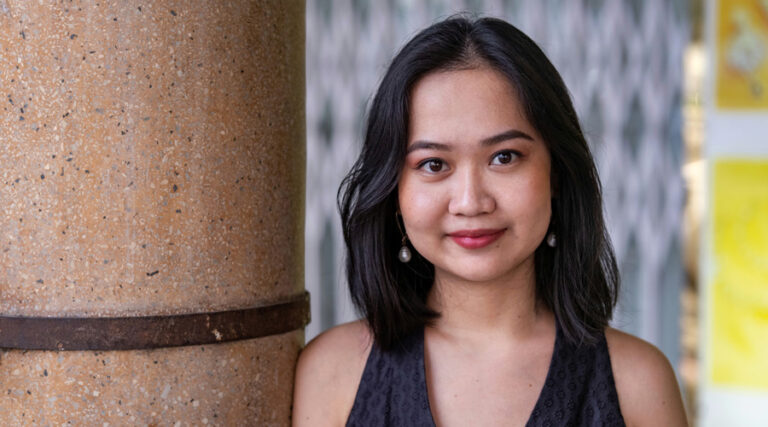Alumni Interview: Sharlynn Ng
Years at ISPP: 2005 – 2010 | Class of 2012
Hi All! Hope everyone is safe and well wherever in the world you are at! I’m Sharlynn Ng, I was a student at ISPP from 2005 to 2010 and am from the Class of 2012.
Before Phnom Penh, my family was in Ho Chi Minh for two years, from 1995 to 1997, and then in Yangon for almost eight years, from 1997 to 2005. After leaving Phnom Penh in 2010, my family permanently moved back home to Singapore (which was never far away!), I joined the Overseas Family School and graduated in 2012!
Towards the end of high school, I felt a deep uncertainty about what I wanted to do. None of my passions seemed like viable options to pursue in university and neither did I feel strongly enough about the courses I was interested in to make any applications. Therefore, I got my first job after high school in retail at Universal Studios Singapore where I had an amazing experience that taught me responsibility, accountability and teamwork while having great fun.
During my six months on the job, I realised I wanted to pursue work in the F&B (Food & Beverage, Ed. note) industry. Food and all things edible had excited me so I took up a technical course with At-Sunrice GlobalChef Academy. At culinary school, I developed my technical skills and knowledge and gained critical industry experience through internships as well as meeting some of the most amazing people.
After graduating At-Sunrice in 2014, the plan was to move to Denver, Colorado, to pursue a degree with Johnsons and Wales University. However, I put my plan on hold when my partner could not make the move at the same time.
I then joined a large restaurant group on flexible hours and spent time growing my blog and writing freelance for local food publications. In 2015, when it was clear that I was not going to pursue Denver anymore, I joined Hotel Jen Orchardgateway for a little under a year before I finally knew it was time to head back to school.
In 2016, I enrolled in Curtin Singapore and had an awesome two years, graduating with a Bachelor’s in Commerce, majoring in Management and Marketing. Post-graduation, I took some time off before joining a small marketing agency for a brief period before landing a role in marketing in the company I’m with today, COMO Hotels and Resorts.
Today, I can say with certainty that it was absolutely the best decision, NOT going to university straight after high school, unlike most of my peers. My heart belongs in the hospitality world and I believe that for now, I’ve found a happy place. Just can’t wait till we can travel again!
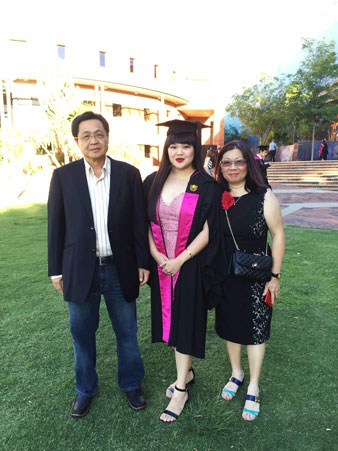
What is your favourite ISPP memory?
Oh, there are so many to recount, I’ll name a few! The first would be going up and down the long narrow and fairly steep stairs to the “treehouse” room on the old Secondary campus. During my middle school years, Mr Krupp was our English teacher and it was always such a joy to go to his class. Another fond memory was the DT labs, I had an immense interest and love of creating things and Mr McCallum always had the best playlists while we were hard at work! My absolute favourite memories have to rest with all my school trips. I think ISPP did the most amazing job organising trips which were invaluable. It was a great way for students across different grades to bond and the activities were so enriching. I had the privilege to travel to Chiang Mai, Khao Yai, Laos and Sumatra on school trips.
What if we don’t know what we like to do and have been thinking about it for years?
That’s a very normal way to feel! You are not alone and there’s nothing wrong with not knowing what you like and do not like! Our interests, values and goals change as we grow up and some of us just need more experience, some of us need to discuss with others and others can identify more easily what they like to do. Everyone is different and don’t feel discouraged because you don’t know what you like or want to do in life.
As someone who is also uncertain about the future and my path in life, what advice would you give?
My advice to teenagers and young adults who are uncertain of what path to take and what to do next is to make the best decision you can and then to focus all your energy to do your best in whatever you choose so that you can look back and say, “Hey, I tried that and I gave it my all, and now I know I’m good at it!” or you might go “Now I know it’s not really for me”. The important bit is that you do your best in whatever you commit to so you can conclude after with confidence and then make another decision.
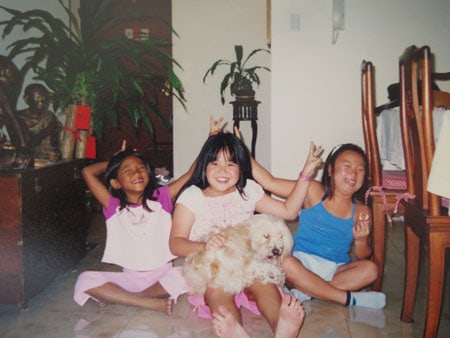
What are some tips for finding one’s passion if they don’t know what they want to do in the future?
Not everyone will have something they are really good at when they’re in school and sometimes your passions may not be something you feel comfortable or confident in pursuing after high school and that’s completely normal. The first tip is to get a clear idea of your strengths and weaknesses, talk to your teachers, family or ask your friends for their thoughts too. This can be very helpful when you’re looking at potential further studies and jobs, as you’d want to leverage as much on your existing skillset. Another tip would be to try different things! There’s no one correct or true path to take in life, so more than often the process of elimination is your best friend. That might mean, deciding to take a gap year to work or travel first, it might mean changing your majors six months into your studies or even changing industries. Do not fear change, it is the only constant in life.
How did you know you wanted to go into hospitality?
There was not a single moment where I knew, it just so happened that my very first job in retail at Universal Studios was within the hospitality industry and I went on to study and continue in jobs within the industry! I’d always been interested in food, cooking and travel so it seemed like the sensible choice when I decided to join a technical course for F&B. I’m still working in hospitality today, but not in operations anymore.
Do you think it’s okay to not have clear plans for your future?
I think it’s okay not to have clear plans because a plan is only a plan. What I mean by that is that no matter how good a plan is, things will always change. However, I do think it’s very important to have some sort of plan. It’s our responsibility to get to where we want to be or to progress even if we aren’t quite sure of where we are going. A rough plan or idea of what you think you need/want to do is better than nothing!
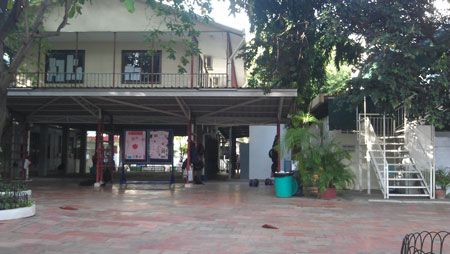
What would you tell your high school self?
I had a feeling someone would ask this! I would tell my high school self that everything will get better. The best years of your life have yet to come, high school can be a challenging space, it can be a fantastic place too but it’s just one tiny part of your experience as a person so look forward to all to come!
Advice for students in the Diploma Programme (IB DP)?
May the odds be in your favour!! Honestly, IBDP is HARD. Even as a full-grown adult, I don’t work as many hours a day as when I was in the Diploma Programme. My advice? Pick your subjects wisely, work smart – read the briefs and deliver what is asked, be yourself – you will have lots of opportunities to do what you want, to select the activities to pursue CAS (Creativity, activity, service, Ed. note), don’t just do things for the sake of doing them but make sure you are doing things you are interested in! Last and most importantly is to make sure you are getting enough sleep! I can’t stress this enough, too many IBDP students are sleep deprived and as difficult as it is to find enough hours in a day to do all your work, sleep and have fun… make sure you are getting at least 7-8 hours of sleep in!
What would you tell recent high school graduates?
Don’t compare yourself to others, everyone progresses in a different way and at a different time. Make the best choice you can at the time and see your decision through and if things need to change then change, life isn’t linear, change is the only constant in life!
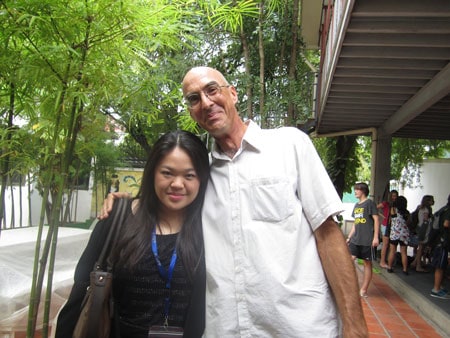
How was your experience at Universal Studios? What did you do every day?
I had a wonderful experience working in a retail store in USS (Universal Studios Singapore) which I attribute to having an amazing manager who invested a lot of time into teaching everyone and treating us equally, even if we weren’t full time. My position was a retail associate, which is an operational job. My main daily responsibilities included counting stock, replenishing merchandise in a store, handling the cashier, handling customer enquiries and issues.
How has your perspective changed after living in many countries?
I cannot say it has changed, more so it has shaped my perspective. I was living abroad from ages 1-15 years old so I have no point of comparison for a before and after. I think being exposed to the various cultures, societies and circumstances as part of the expatriate community in Southeast Asia has given me a much more open mind and ability to think critically from other points of view. I believe my views are less insular than those of my peers who only lived and grew up in one place. I think nothing but good comes out of living abroad and being exposed to the different realities that exist, it has led me to be a much more appreciative and grateful person.
What do you miss most about Cambodia/Yangon/Ho Chi Minh?
I miss how life was at a slower pace in those cities, maybe partly due to being a child/teenager oblivious to the pains adults deal with but I do believe things genuinely move at a less stressful pace compared to Singapore. Also, I miss the local food and being amongst the expatriate community, just being around such a diverse group of people every day was really lovely.
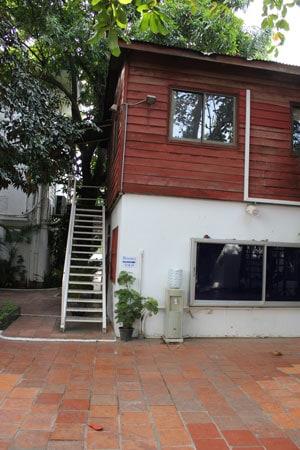
Can you speak the languages of the countries you have lived in?
Great question but the answer is no! I was only a toddler in Vietnam, still learning speech when I left. In Myanmar, I did pick up basic words but mainly used English at school and home while struggling to learn my mother tongue! In Cambodia, similarly, I picked up only the most basic words for use at the markets but didn’t have the interest to learn more. Also, the language would not be useful to me after leaving so my family preferred to focus on studying my mother tongue and my chosen second language at school.
Which was your favourite country to live in and why?
This is a hard question, I would have to pick based on my memory at the time as I lived in each country at a very different stage in my growing up years and have only managed to visit Cambodia and Vietnam since leaving. I think Myanmar is just slightly above Cambodia in terms of favourite as I have nothing but fantastic childhood memories. There was nothing much to do in Myanmar when I lived there as the city was very underdeveloped. So lots of time spent at friends’ homes, in school and a few beautiful trips to the beaches and up North to Bagan and Mandalay by car.
How did it feel moving from place to place as a child?
As someone who left their hometown at the age of 1, it was nothing unusual for me. I knew that the day would come that we would move and I feel I was very lucky that my family didn’t move very often. I found moving quite fun, I loved discovering random things while packing but also didn’t like losing things inevitably. I think moving is mainly more difficult for those who moved frequently, or for those who moved for the first time when they were older.
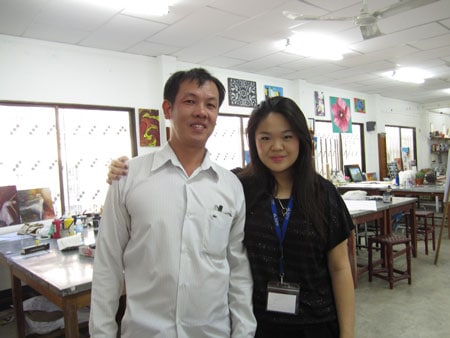
How did you adjust to different cultures when you were younger?
I honestly don’t recall any “adjustment” period to different cultures in school as I was in the international environment since I was a toddler. I think my earliest memories of noticing differences in culture were small things such as how my American classmates called their parents by their first names or noticing that certain classmates did not typically eat hot food for lunch. I think being in such a diverse crowd every day, I easily accepted the differences and didn’t spend much time if any trying to understand why people did things differently but more so just knew differences co-existed.
What would you recommend to other kids/teens to help them adjust to new countries?
I think if you’re feeling homesick, it’s important to try to keep in touch with family and friends back home, read the news and keep updated which can help lessen the sense of distance. If you’re having trouble adapting to a new school system, try to learn about the system, speak to your homeroom teacher, the programme coordinator, other classmates who came from the same system and that should help with the change. If you came from a city/country that was so vastly different, try to focus on what’s different and find out what people like to do in your new city. Although there will be lots you miss, there will be so much more you’ll get to experience and learn about wherever you are.
How did your parents feel about not going to college right after high school?
My parents were never the type who were very hellbent on their children going to a particular school or course so in a sense, I was “lucky” I didn’t have the stress of parents who would be disappointed if I went a different path from what they hoped for. I’ve never had any limitations from my parents in terms of what they would like me to do or not do, so they were just very happy that I was being responsible and choosing to work since I did not decide to pursue college after high school.
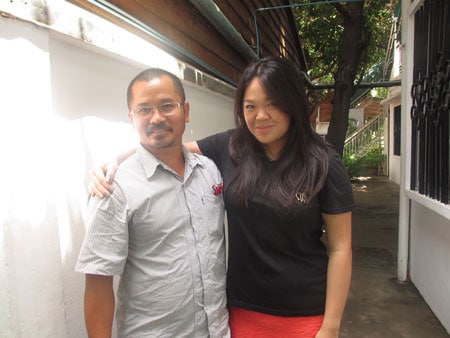
Do you feel as though going to a prestigious school is worth it?
It’s only worth it in a few scenarios; firstly that it is an option you/your family can afford, if it is not realistic financially, no amount of reputation or prestigiousness can offset the burden placed upon yourself or your family. Secondly, it would be worth it if the school is truly offering a course to which you are going to be 100% committed. Do not sign up for a school if it’s not giving you all the modules you are looking for, especially if there is another suitable option that has more of what you’re keen on. I can’t speak for the experience of going to a prestigious school as I’ve not been to one but I know from peers who have attended that it’s really what you make of it. Some had the best time of their lives, some couldn’t wait to move on, it is what you make it, so make a sensible choice for yourself and don’t worry about what others will think.
What subject did you learn in IB and how did it affect your career?
I took English Literature, Visual Arts and History for my higher level subjects and then German ab initio, Math Studies and Biology for my standard level subjects! I’d have to say that it’s not so much any particular subject that was of most use to me but the critical thinking, problem-solving and creativity skills built up through the coursework and great teachers I had for English Literature and TOK (Theory of Knowledge, Ed. note)! In any career, you will need to be able to think and problem-solve critically. Creativity helps when it comes to being resourceful when resources are scarce!
What are your career goals?
Ooo, this is a tough question. I do think half the time, the average twenty-something-year-old wouldn’t have a straight answer for this and I belong in that group! I’ve spent the first half of my twenties trying out different types of jobs and a few industries. Now, I think I’ve found some stability but I’m still not certain that my current career is where I’d want to be in the long run. My short-term career goals include leading/contributing to significant improvements in processes/systems at my current job, learning new skills and marketing concepts. Whereas my long-term goals include going back to school to pursue a master’s degree in a specialized field and working remotely from Bali and volunteering time regularly to assist non-profits.
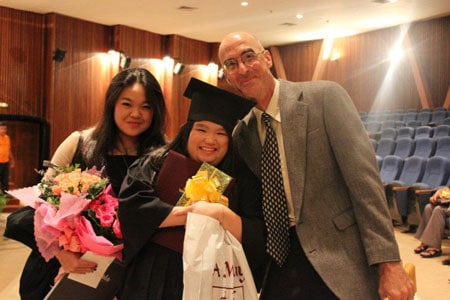
Do you have any career regrets?
My only career-related regret was rushing into a past job without a proper interview. I interviewed for a role but decided to decline the offer after some answers I received that led me to believe I wouldn’t be in an environment I would want to be in the long-term. However, the interviewer recommended me to another team in the company and after a brief phone call about the role, I accepted it without a proper interview. Looking back, it was a mistake accepting a job without even having an interview with the person in charge. Asking the right questions in an interview and hearing what the interviewer is willing to share or not will tell you a lot about the role and potential situation you are joining and that can be a total deal-breaker.
How do you find jobs as a younger person?
This is a bit of a funny question! I assume by “younger”, we are referring to 18-24 years old? Honestly, there is nothing different in the approach of finding a job as a younger or older person, maybe with the exception that when you are older, you can leverage on your network to look for opportunities (which you can too as a younger adult if you have a network to tap into). In general, start on the web, there are plenty of job portals, sites like LinkedIn and many others catering to certain industries. You can also try the more traditional route of looking into the newspaper ads, job centres, or simply looking up a company and emailing them to ask if they have vacant roles or just sending your CV to them!
How did you grow your blog/garner attention?
I think when I was blogging (I’ve stopped blogging for some time as it was mainly a hobby) the way to grow your blog is to network on the platform. So visiting other blogs and building relationships with other bloggers as well as reviewing products sent to me by companies and holding giveaways. There’s A LOT more you can do to truly grow a blog in terms of digital marketing efforts but my blog was just a hobby, all grown organically and very slowly.
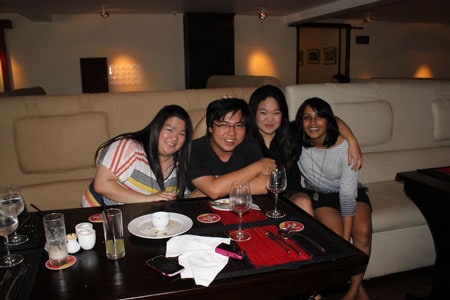
What are the important lessons/requirements you need before a job?
Asides from any mandatory requirements for specific jobs (ie. a bachelor in engineering to apply to be an engineer), I guess you need to ensure you know why you are applying for the job. Is it because you just want an experience? To earn money to support yourself? To get a taste of what working in an industry might be like? All of the above?
When you are young, you do have the leisure to try out various jobs, change jobs more frequently as an individual without long-term commitments, so do try things out.
I think the most important thing anyone can have or must learn is taking responsibility and ownership for your actions and their consequences.
How has COVID-19 affected your career?
I believe every single working person’s job and career was affected one way or another. I know of those who work in e-commerce and food delivery, they experienced incredible business growth, overwhelmingly so because of COVID, and even had bonuses due to how well their company was doing.
On the other hand, my company is in the hospitality industry, the second hardest hit behind the aviation industry. Despite being in the corporate headquarters, my career was greatly impacted due to loss of colleagues made redundant, restructuring of teams, loss of income and overall working in an under-resourced environment which impacted how I worked, what I could ask for and morale at times.
I think COVID-19 has made me and many others think about what we expect from our work. Evaluating how companies treat employees during bad times and making decisions that put career advancement aside sometimes and instead prioritise health and well-being.
